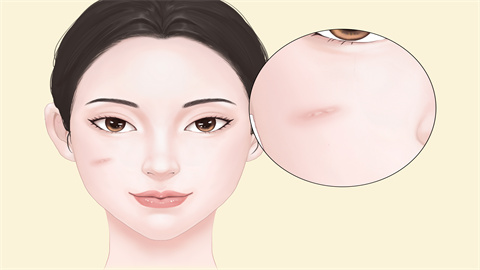What should not be eaten with facial scars?
Generally speaking, when there are scars on the face, it is not recommended to consume foods such as chili peppers, ice cream, shrimp, soy sauce, and mutton, nor is it advised to take medications such as ibuprofen sustained-release capsules, warfarin sodium tablets, aspirin enteric-coated tablets, dexamethasone acetate tablets, and nifedipine tablets. Detailed explanations are as follows:

I. Foods
1. Chili Peppers
Chili peppers are spicy foods that may irritate the scar after consumption, causing pain and discomfort. Meanwhile, consuming chili peppers when there is a facial scar may increase blood flow to the scar area, which is not conducive to scar recovery.
2. Ice Cream
Ice cream is a cold food that may cause vasoconstriction of facial capillaries after consumption, affecting blood flow and thus being detrimental to scar recovery. Additionally, consuming ice cream may affect spleen and stomach function, reduce immunity, and delay scar healing.
3. Shrimp
Shrimp is cold in nature and may irritate the scar and affect healing. Moreover, shrimp is a high-protein food, and consuming shrimp when there is a facial scar may cause skin elevation at the scar site, leading to scar hypertrophy.
4. Soy Sauce
Soy sauce may cause pigmentation, affecting the appearance of the scar. Foods with high pigment content should be avoided during the scar healing phase.
5. Lamb
Lamb is considered a "heat-provoking" food. Consuming lamb during the healing phase of a scar may stimulate symptoms such as redness and itching at the scar site, which is not conducive to scar healing.
II. Medications
1. Ibuprofen Sustained-Release Capsules
Ibuprofen sustained-release capsules are non-steroidal anti-inflammatory drugs (NSAIDs). Taking these capsules may affect platelet function, delay blood coagulation at the wound site, increase the risk of bleeding, thereby affecting wound healing.
2. Warfarin Sodium Tablets
Warfarin sodium tablets are anticoagulant drugs. Taking warfarin sodium tablets can affect the blood's clotting ability, increasing the risk of bleeding and hematoma at the wound site, which is not conducive to scar healing.
3. Aspirin Enteric-Coated Tablets
Aspirin enteric-coated tablets are antiplatelet drugs. Taking aspirin enteric-coated tablets can affect platelet aggregation and thrombosis, increasing the risk of bleeding at the wound site and affecting scar healing.
4. Dexamethasone Acetate Tablets
Dexamethasone acetate tablets are corticosteroid drugs. After taking dexamethasone acetate tablets, the immune system is suppressed, which can affect the wound healing process and easily lead to hypertrophic scars.
5. Nifedipine Tablets
Nifedipine tablets have a vasodilatory effect. Taking nifedipine tablets may increase blood flow to the scar area, which is not conducive to scar recovery.
In daily life, it is important to keep the wound clean and dry to avoid infection. At the same time, maintaining good living and eating habits, balanced nutrition, and moderate exercise can help maintain skin health and reduce the occurrence of skin problems such as scars.




